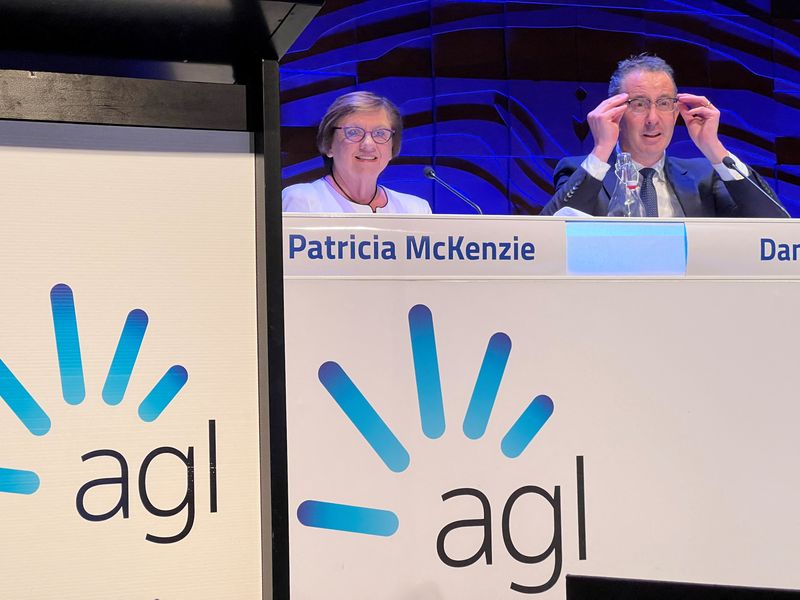By Sonali Paul
MELBOURNE (Reuters) - Shareholders in AGL Energy (OTC:AGLXY), Australia's largest power producer, on Tuesday defied their board and approved all four directors proposed by the company's top shareholder, tech billionaire Mike Cannon-Brookes.
At the same time, in a surprise outcome, more than 25% of shareholders rejected the executive pay plan, final votes showed. Under Australian corporate rules, the entire board could face re-election if that is rejected again next year.
Climate activist Cannon-Brookes, with an 11% stake in AGL, succeeded earlier this year in forcing the company to scrap a demerger and instead announce plans to speed up the closing of its coal-fired power plants by a decade and spend up to A$20 billion on renewable energy by 2036.
Looking to boost his influence, Cannon-Brookes' investment vehicle, Grok Ventures, proposed four candidates for AGL's board: ex-Tesla executive Mark Twidell, former Energy Security Board chair Kerry Schott, John Pollaers and Christine Holman.
All four were approved by AGL's shareholders, Chair Patricia McKenzie told shareholders at the group's annual meeting, citing proxy votes, although the board had only endorsed Twidell.
"A great day in the future of Australia's decarbonisation," Cannon-Brookes said in a message on his Twitter feed, thanking his four board nominees for "stepping up to help guide" AGL and shareholders for supporting them.
AGL Chair McKenzie said the board would work constructively with the new directors.
The expanded board's first job will be to find a new chief executive to lead the company's transition to green energy, after Cannon-Brookes' battle to overhaul the company led former CEO Graeme Hunt to quit.
"This represents another majority vote by AGL shareholders pointing to their desire for change, fresh thinking and more execution capacity to realise the potential of this great company," a Grok spokesperson said in an emailed statement after the annual meeting.
All four of Grok's picks said in recorded comments at the annual meeting they were independent of the tech billionaire and would work in all shareholders' interests.
While McKenzie won overwhelming support for her re-election to the board, more than 25% of votes cast went against the company's executive pay plan, which she said was mainly due to opposition from two major shareholders.
"This is a disappointing result given that all major proxy advisors recommended that shareholders vote in favour of the report and no material concerns were identified," McKenzie said at the annual meeting.

Under Australia's corporate rules, shareholders may vote to remove a company's board if at least 25% of voting shareholders object to the pay plan in two consecutive years.
Adding to its challenges, AGL now faces a potentially beefed-up arch rival after last week's surprise announcement that its spurned suitor, Canada's Brookfield, has led an A$18 billion bid for Origin Energy, Australia's No. 2 power producer.